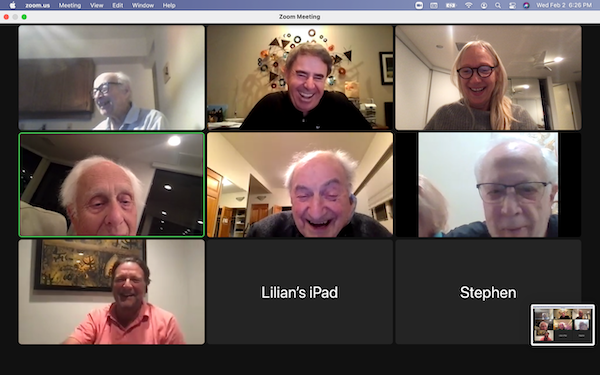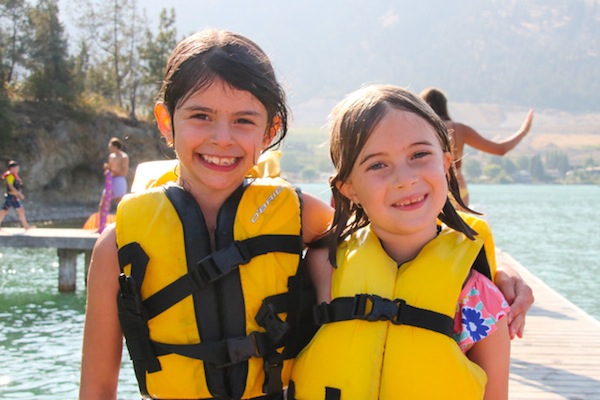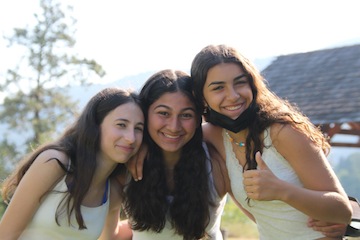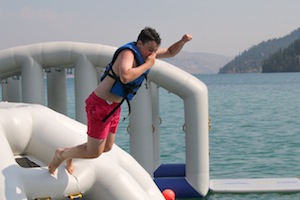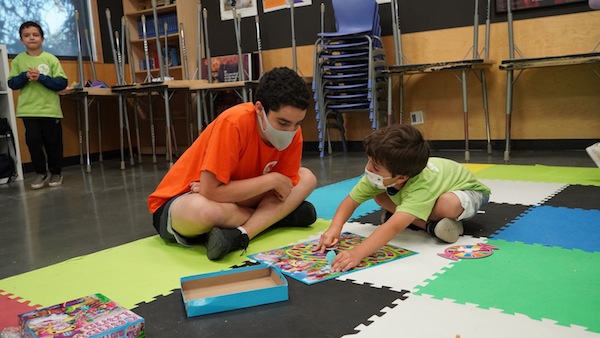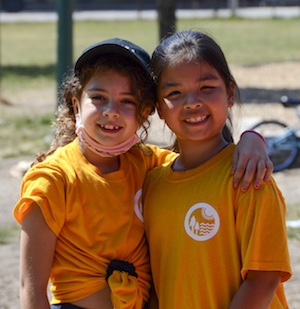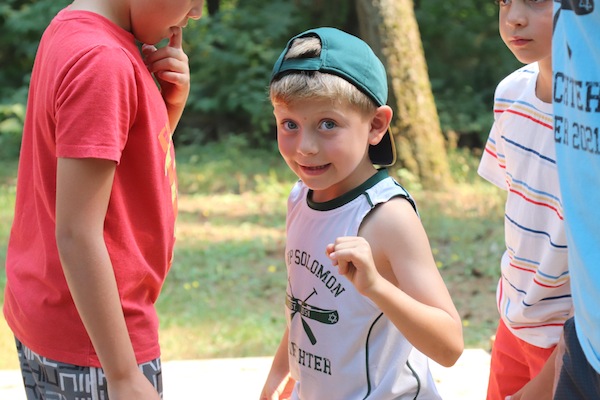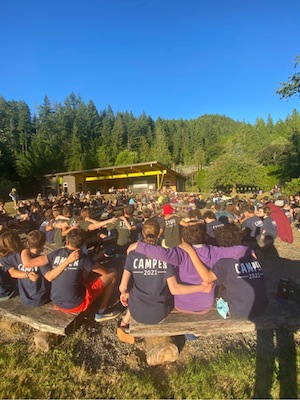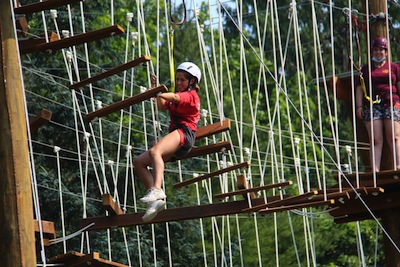All over social media, we’re reminded to “Learn something new each day!” Even before the internet, I remember similar aphorisms – and then “Heck, if you’re lucky, learn two!” Attached to these reminders was the message that each experience and, yes, especially the awful ones, offered us learning opportunities.
While encountering this social media push for self-improvement, I happened to study, from the Babylonian Talmud, Chagigah 3a&b. This page of Talmud points out something that never occurred to me before. This message about lifelong learning is both a Jewish and ancient one. In the second century CE, in Peki’in, Rabbi Yohanan ben Beroka and Rabbi Elazar ben Hisma went to greet Rabbi Yohoshua. Rabbi Yehoshua asked them what new thing they’d learned that day in the study hall. They suggested they were his students and learned directly from him – how could they present him with something new?
Rabbi Yehoshua responded there couldn’t be a study hall without “novelty.” He went on to ask them who had lectured that week. Upon learning that Rabbi Elazar ben Azarya had taught them, he coaxed them for information. Then, he learned something new from the students.
This sounded just like when we greet our kids as they get off the school bus, or ask students (of any age) what they are learning from other teachers. Inevitably, there is something to learn. This bit of wisdom goes further. The Gemara (later commentators) add that the Torah is like a goad. It pushes us on to learn more. Like a sharp nail or cattle prod, it forces us to keep moving onward and learning from new and different circumstances. Torah, the rabbis conclude, doesn’t just have a single, immovable or simple answer for us.
OK then, I thought, what are some of the lessons we’re able to draw from the pandemic and the political upheaval around us? Many feel as though the pandemic is over, just because we’re tired of it but, practically, this virus will “be over” only when it’s ready to be. In an effort to get past this world-weary reaction, I thought about some of what we’ve learned so far.
1) Since Omicron’s arrival, we’ve realized, more than ever, that we must do our own cautious self-management of health. For awhile, in our North American culture, we expected a doctor to diagnose every illness; our workplaces required a doctor’s note. However, when the level of sickness around us is overwhelming, we’re required to examine and diagnose ourselves. This actually returns us to the world of the rabbis in some sense, where bloodletting, herbs and other cures were advised. Much like Ivermectin, some of these did more harm than good.
2) We should stay home when sick. We’ve all felt forced by the culture around us to work through illness even when it would be best to stay home. Yet, highly contagious illnesses mean we need to protect others to keep sickness from spreading. Again, we’ve lived in a “modern” bubble here for awhile. We’ve had fewer contagions and better vaccines and medical care that allowed us to circulate even when we were probably sick. For centuries, people have fought terrible illness by isolating. A quick example would be that of leprosy – we learn from the Torah and the Talmud that those afflicted must stay outside “the camp” and away from others. Self-isolating is the modern equivalent.
3) With the requirement to stay home came widespread acknowledgement of inequity. Many low-income people can’t afford to stay home. Their jobs don’t allow for it. Without paid sick leave, people can’t rest at home. Jewish tradition suggests we should visit or bring food for the sick. We should care for those less fortunate in our communities, such as widows and orphans. While our political advocacy may involve supporting food banks or homeless shelters, does our contemporary Jewish community focus on fixing inequity? We no longer have a Shmita year that forgives debt and evens the playing field. Is the Canadian answer something like universal basic income or the $10-a-day childcare plan?
4) Change isn’t always bad. Career changes, whether forced or chosen, can be positive. Our educational systems shifted enormously to deliver remote learning and accommodate COVID protocols. Our elder-care facilities are in dire need of improvement. Our hospitals need more capacity and redundancy, in both staff and space, so that even pandemics can be managed.
5) Scientists predicted that with climate change, pandemics may become more frequent. Planning to alleviate some of the effects of climate change has been a rocky path. So many governments get swept up in politics and make no policy adjustments. Our current COVID situation is a reminder that climate change, long predicted, is now here. Leaders must arm themselves with science rather than politics to save lives. Saving lives and caring for the earth are Jewish imperatives. This pandemic has been a frightening wake up call.
We can learn from every situation. The rabbis in the talmudic tractate of Chagigah at first assumed their mentors and leaders knew everything. This offered me a lesson too. Good leaders pursue lifelong learning because they are humble enough to know they will never know it all. Facing challenging experiences and learning from them can goad us so that we grow to be better people. The huge number of deaths, chronic illness and hospitalizations from COVID is devastating. If we try hard, we can find lessons here for a better future.
Joanne Seiff has written regularly for CBC Manitoba and various Jewish publications. She is the author of three books, including From the Outside In: Jewish Post Columns 2015-2016, a collection of essays available for digital download or as a paperback from Amazon. Check her out on Instagram @yrnspinner or at joanneseiff.blogspot.com.

